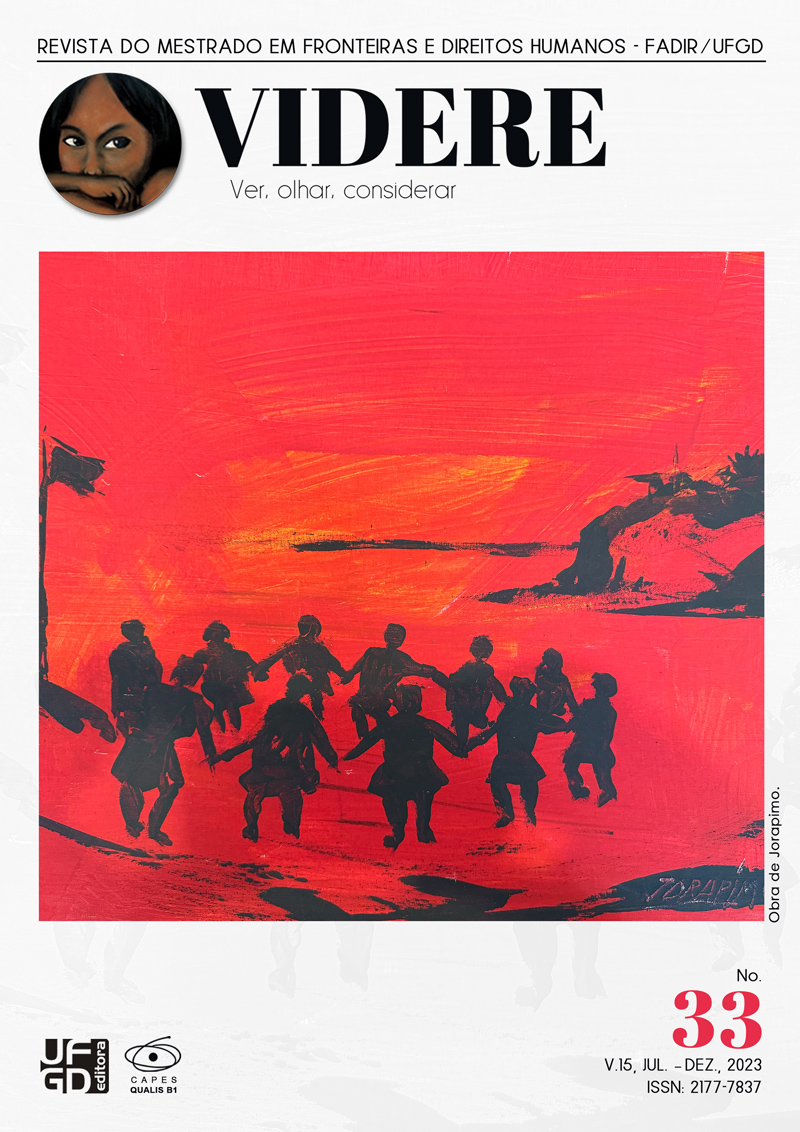Analysis of the applicability of transcendence in the magazine resource
DOI:
https://doi.org/10.30612/videre.v15i33.17733Keywords:
Direito processual do trabalho, Recurso de revista, Transcendência, IndicadoresAbstract
This work aimed to understand the legal meaning and scope of the transcendence indicators provided for in art. 896-A, § 1, items I to IV, of the CLT. An attempt was made to investigate doctrinal and jurisprudential interpretations of each indicator, seeking to identify the scope of its application in the legal system. We opted for the bibliographic review method, taking works published from the year 2018 onwards. For the purposes of economic transcendence, it was understood that the value of the cause should not be interpreted in isolation, being fundamental the analysis of the concrete case. As for political transcendence, it was interpreted that this will be considered in cases of disrespect to other non-sumulative forms of sedimentation of jurisprudence. For the configuration of social transcendence, the possibility of postulating, including by the complained party, a right provided for in human rights treaties ratified by Brazil was envisaged. It was concluded, in turn, that a cause offers legal transcendence when it deals with old issues not yet pacified by jurisprudence, including around any legislation applicable to labor law, even if belonging to another branch of law. In general, it was observed, in relation to the transcendence indicators, a reasonably extensive interpretation, with a scope greater than that of the legal provision.
Downloads
References
ALVES, R. F. A transcendência do recurso de revista no TST, após a vigência da Lei no 13.467/2017. [s.l.] Centro Universitário de Brasília, 2019.
ESPINOSA, M. O requisito recursal da transcendência. Revista Científica Semana Acadêmica, v. 8, n. 203, p. 2–14, 2020. DOI: https://doi.org/10.35265/2236-6717-203-9059
LEITE, C. H. B. Curso de Direito Processual do Trabalho. 16. ed. São Paulo: Saraiva Educação, 2018.
LIMA, B. L. F. Pressuposto de transcendência do recurso de revista: a inconstitucionalidade do art. 896-A, parágrafo quinto, da CLT. [s.l.] Centro Universitário de Brasília, 2021.
MOREIRA, F. O. G.; PEIXER, L. Princípio da transcendência e os parâmetros do art. 896-A da Consolidação das Leis do Trabalho: (in)viabilização do acesso ao Tribunal Superior do Trabalho. Revista Juris UniToledo, v. 4, n. 4, p. 112–132, 2019.
PAIVA, T. M. L. O pressuposto da transcendência no recurso de revista: reforço do papel do TST ou restrição de acesso à justiça? [s.l.] Instituto Brasiliense de Direito Público, 2020.
PEREIRA, I. F. Transcendência da causa: uma análise do novo pressuposto de admissibilidade do recurso de revista e dos critérios para sua aferição. Ratio Juris. Revista Eletrônica da Graduação da Faculdade de Direito do Sul de Minas, v. 3, n. 1, p. 116–133, 2020.
PRITSCH, C. Z. A “transcendência” do recurso de revista: avanço ou retrocesso? Revista do Tribunal Regional do Trabalho da 18a Região, v. 22, p. 54–73, 2019.
SAMPAIO, P. M. S. Transcendência como mecanismo de filtro recursal: o repensar do papel do Tribunal Superior do Trabalho. [s.l.] Instituto Brasiliense de Direito Público, 2020.
SOUZA, F. S. O pressuposto da transcendência no recurso de revista do Tribunal Superior do Trabalho. [s.l.] Centro Universitário da Serra Gaúcha, 2021.
ZANARDI, A. V. Recurso de revista: a transcendência como pressuposto recursal. [s.l.] Centro Universitário Barão de Mauá, 2021.
Downloads
Published
How to Cite
Issue
Section
License

This work is licensed under a Creative Commons Attribution-NonCommercial-ShareAlike 3.0 Unported License.
Authors must accept the publication rules when submitting the journal, as well as agree to the following terms:
(a) The Editorial Board reserves the right to make changes to the Portuguese language in the originals to maintain the cultured standard of the language, while respecting the style of the authors.
(b) Authors retain the copyright and grant the journal the right to first publication, with the work simultaneously licensed under the Attribution-NonCommercial-ShareAlike 3.0 Brazil (CC BY-NC-SA 3.0 BR) that allows: Share - copy and redistribute the material in any medium or format and Adapt - remix, transform, and create from the material. CC BY-NC-SA 3.0 BR considers the following terms:
- Attribution - You must give the appropriate credit, provide a link to the license and indicate whether changes have been made. You must do so under any reasonable circumstances, but in no way that would suggest that the licensor supports you or your use.
- NonCommercial - You may not use the material for commercial purposes.
- Sharing - If you remix, transform, or create from material, you must distribute your contributions under the same license as the original.
- No additional restrictions - You may not apply legal terms or technological measures that legally restrict others from doing anything that the license permits.
(c) After publication, authors are allowed and encouraged to publish and distribute their work online - in institutional repositories, personal page, social network or other scientific dissemination sites, as long as the publication is not for commercial purposes.



















